The ultimate guide to eco travel

Eco travel, also known as green tourism and sustainable tourism, means looking after the land, air, and waters that you travel through.
In this day and age of rising sea levels, forest fires, and pollution, it’s vital that we travellers take responsibility everywhere we go and keep eco travel in mind to protect the world we live in.
Here’s how you can make a positive effect on the places you visit.
Read next: 20 sustainable gift ideas for travellers
This post contains referral links for products I love. Adventurous Miriam earns a small commission at no extra cost to you if you purchase through my links. I appreciate your support ♡ Learn more
What is sustainable tourism
So, what is sustainable tourism? Well, basically it’s responsible travel.
We always leave a footprint wherever we go, through the trash we leave behind, the water and energy we use, the pollutants we put into the air and water. Responsible tourism means reducing that footprint to zero by leaving no waste and no added pollution to the area. You can do this with the things you buy and the things you pack, the way you eat and bathe and move from place to place, and even staying at an eco-hotel.
That is eco travel. That is green tourism. And by implementing a philosophy of eco travel, we can ensure that places remain healthy and that we can continue to travel in a responsible way forever.
Why is ecotourism important?
Eco travel and ecotourism are what keep this planet open for us.
Quite simply, if we don’t follow the ecotourism examples and ethics, then places we want to visit become closed to tourists and travellers. It’s happened already (which we’ll discuss in a moment) and it will happen again.
However, keeping eco travel in mind wherever you go, which is simply about respecting the land and waters around you, ensures that the people who live there and the tourists who follow in your footsteps can go on enjoying the places you visit. Without ethical tourism, tourism itself will steadily vanish.
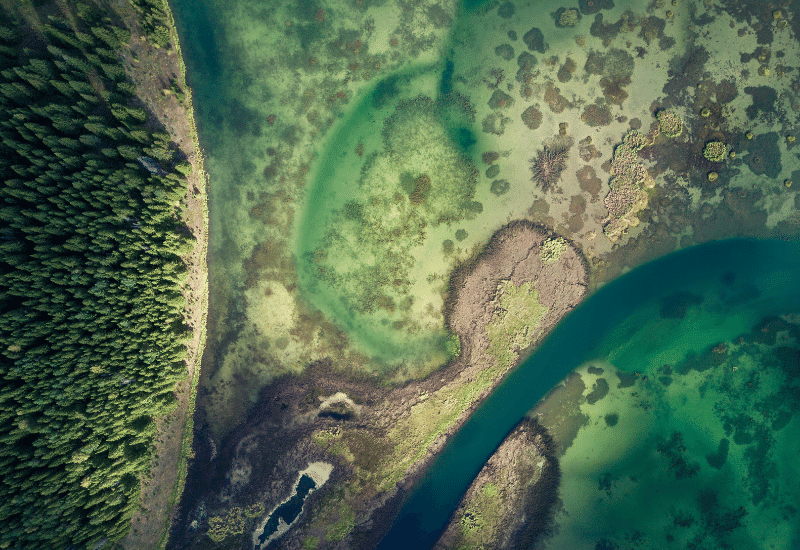
Over-tourism
This is perhaps the biggest danger to ethical tourism. Too many people mean too much pollution: light pollution, air pollution, water pollution, pollution of all kinds. When too many people visit one place, that area becomes inevitably choked by people and the trash they leave behind. The area may even not be able to meet the demands of the tourists in terms of available clean water, food, and beds.
Eco travel can hugely help with this issue. Taking ecotourism holidays reduces trash and your carbon footprint, allowing a busy place to breathe and the local people to not suffer with over-tourism.
Here are some examples of what can happen as a result of over-tourism.
Boracay was closed
Boracay, one of the most popular tourism islands in The Philippines, was closed for six months during 2018 as a clean-up and environmental rehabilitation was put in place. Boracay’s waters were so poorly polluted as to deteriorate the environment and those creatures that lived there. This was a direct result of over-tourism and the carelessness of tourists who visited the area and didn’t take responsibility for their own trash and pollution. This is why responsible travel is paramount.
Barcelona protests against tourists
The people of Barcelona are sick to death of tourists flooding to the area. While tourism can be very good for an economy, and many rely on it, over-tourism has the opposite effect. It makes living in a place challenging because there are too many people, prices of food and drinks rise, and other detrimental effects to standards of living. Tourism affects locals as much as it affects the environment and wildlife. Responsible travel keeps local people in mind as well.
Polluting cruise ships in Venice
In Venice, Italy, the increase in tourism has meant that the number of cruise ships in the area have caused waves that have eroded the architecture of Venice buildings. The ships have also massively increased levels of water and air pollution in the area over the last 10 years. The effects of over-pollution can actually be seen and felt.
Erosion at Machu Picchu
The Inca Trail which leads travellers to the treasured ancient spectacle that is Machu Picchu has actually been rapidly eroded by an unsustainable amount of tourism in recent years. This means that ancient stone is being worn away and that the trail has steadily become unsafe for locals and tourists alike.
Maya Bay was closed
Much like Boracay, Maya Bay in Thailand was closed for four months due to the damaged that the coral reef there suffered as a direct result of tourism. The sheer number of tourists meant that too much litter was left, and the water temperatures raised to a damaging degree, harming the reef.
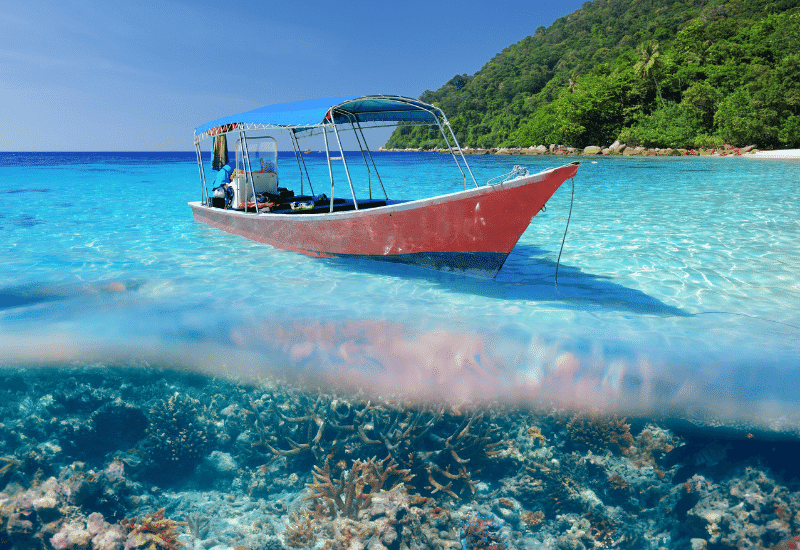
How does eco travel help?
Eco-travel is about considering other people and what impact you’re leaving behind after you’ve gone home. This is how it helps:
Reduced water pollution
Doing things like using reef-friendly sunscreen and picking up after yourself while at the beach can hugely reduce the impact of water pollution in oceans, rivers, and lakes. This means that the reefs, water wildlife, and purity of the water itself all remain undamaged by visiting travel. Water is one of the most important things to preserve through eco-travel.
Reduced strain placed on local businesses
Packing sensibly by doing things like bringing a water filter bottle, a thermos, and reusable make-up wipes can reduce the need to buy single-use essentials and therefore reduce the strain on local businesses to provide things for tourists that will almost instantly become waste products. The very ecotourism definition is, after all, about reducing waste.
Reduce levels of trash
As already mentioned, bringing reusable food items and hygiene products not only reduces the strain on local businesses, but it also alleviates the amount of trash and waste products that cause harm to local wildlife, water supplies, and people. When you visit a place, you should consider every single thing you throw away and what impact it might have.

How does tourism change a place?
The bad: Over-tourism and pollution
- Tourism can transform a charming village into a nondescript town you’d find anywhere in the world, as a result of cosmopolitanism that leads to the arrival of chains like Starbucks and McDonalds.
- It can create a cycle of dependency in which locals find their wealth and worth solely from tourism, which is an unreliable source of capital that can deplete and damage the local economy at a moment’s notice.
- It can bring pollution and the violation of human rights. Pollution is what we’ve mostly been talking about and is what can be mostly curtailed through sustainable tourism. But human rights can also be jeopardised as a direct result of tourism as crime levels rise, both petty and organised.
The good: Economic growth
- Tourism leads to an improved infrastructure and local jobs. More tourists mean more businesses which, in turn, strengthen the local job market.
- It can create a deep sense of understanding and respect that can’t be replicated in the absence of tourism.
- Cultural education, for both locals and tourists, ensures a deeper shared understanding of language, cuisine, religion, and other disparate ideas and experiences that are most easily bridged through tourism and travel.

How to be a responsible traveller
So, we’ve now discussed the importance of sustainable tourism and eco-friendly travel. We’ve looked at how a lack of eco-friendly travel is detrimental to everyone, including ourselves. Now, we need to look at exactly how to follow the guidelines and philosophy of sustainable travel. It’s far easier and more practical than you might think, as well.
Sustainable travel can be less stressful and even save you time and money. Let’s look now at a list of things that you can do on your eco travels to be a responsible traveller, and then at a packing list consisting of packable items that encourage sustainable tourism development.
- Book through an eco-conscious tour provider
- Bring reusables with you
- Avoid plastic
- Find eco-friendly accommodation
- Do your best to support small, family-run businesses
- Be mindful of food waste
- Don’t litter
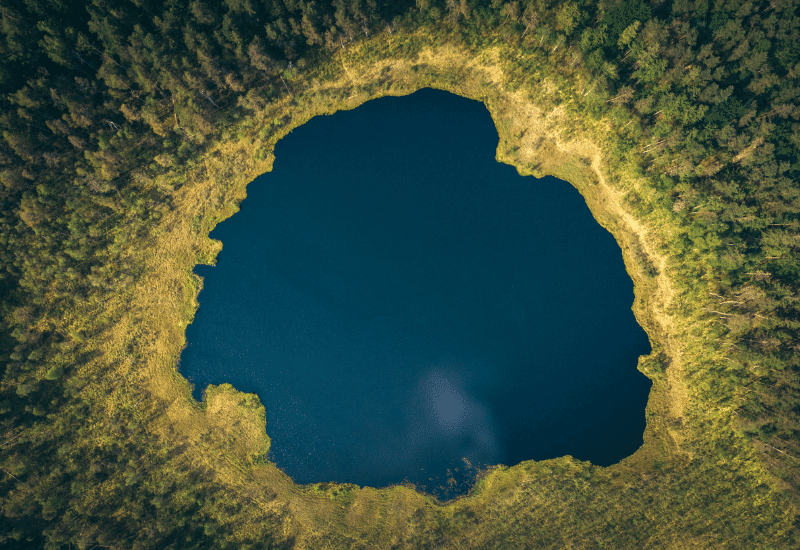
Eco friendly packing list
The above list is an excellent manifesto on sustainable travel, but following those guidelines is only half the battle. The other half is packing eco-friendly items that include toiletries and items related to food and drink.
From eating to wearing make-up, from swimming to brushing your teeth, there are so many simple things that you can pack which reduce your waste to zero, leave no lasting mark on the land you visit, avoid trash and pollution, and are either the same price as your usual packing items or even cheaper!
- Pack a reusable straw (I’m a fan of metal straws because they cool down the drink)
- Fill up a reusable water bottle from a clean source instead of buying water in plastic bottles
- Replace your one-use makeup remover wipes with 100% organic reusable makeup remover pads
- Reduce your plastic use with shampoo and conditioner bars (with the bonus of being suitable for aeroplane hand luggage)
- Switch to vegan deodorant wipes
- Use a bamboo bristle hairbrush and a bamboo toothbrush to reduce your plastic waste
- Bring along a pack of 100% water soluble laundry detergent sheets
- Use reef-safe sunscreen and protect our oceans and your skin

How to reduce waste while traveling
Don’t just be aware; be active! There are six Rs, six rules to live by when being the best eco traveller that you can be. Following these six Rs when you travel ensures that your carbon footprint, your pollution and waste levels, and your negative impact on the world around you are all reduced to zero!
Nothing we discuss here involves a major effort on your part.
You don’t need to spend money you don’t have. You don’t need to go to extra lengths that take time away from having fun. These are simple rules to follow that help everyone, yourself included. If you follow these six Rs during your eco travels, you’ll have a fantastic holiday and the planet will thank you.
- REFUSE – Say no to plastic and have your own cutlery ready to use.
- REUSE – Reuse bottles, clothing or containers while on the move. Have a bamboo coffee cup or a metal flask ready instead of a plastic bottle.
- REDUCE – Less stuff! Minimalism is the key to eco travel. Make sure nothing you pack will end up in the trash and can all be reused again and again or be safely consumed.
- RECYCLE – Every place has different customs; it’s easy to ask and follow the local rules and laws when it comes to recycling.
- ROT – Food waste is a significant issue with larger hotel chains. Eco-friendly hotels encourage composting or not leaving food to waste. Staying at eco-friendly hotels is a great move if you can do so.
- REMOVE – Rubbish is everywhere. A little clean up can have a big impact on the environment and the local population. If you see some rubbish on a beach or in the park, grab a handful and throw it in the nearest bin. It’s a simple gesture that goes such a long way!
How to be an ethical traveller
Ethical travel and eco travel are different, but equally important. Being a good traveller isn’t just about looking after the environment and reducing your carbon footprint. It’s also about being as ethical as possible when travelling.
But what does that mean, exactly?
It means considering both the local people and the local wildlife. It means considering what you buy and where from. It means supporting local industry but only if it’s ethical. It means considering animal cruelty and avoiding supporting it with your time and money.
Here are a few things you can do to be a great ethical traveller.
Support and be mindful of local communities
An important thing to always keep in mind – something that a lot of us are guilty of forgetting – is that a place doesn’t exist solely as a tourist attraction. No town or city is only there for its tourists. It’s a place where local people live their lives every day, commuting to work, running a business, looking after their family and their community.
Las Vegas is a city, not just a gambler’s paradise. Ibiza is a town of local people, not just a party island. And so, when we visit a place, we must always be mindful of the locals and how we treat them. To that end, here are a few simple things you can do and not do in order to be respectful of the local people, their traditions, and their culture.
How to be mindful:
- Respect the dress code
- Be friendly and respectful to the local people
- Support local businesses
- Bargain respectfully
- Follow the rules
- Refrain from giving money or candy to children on the street
- Ask before taking photos of local people
Be aware of animal tourism
Unfortunately, in many places around the world, local businesses make their money off the exploitation of animals and many of us fall for the temptation. A popular and heart-breaking example is elephant riding in Thailand. There are many places in Thailand where tourists can ride abused and broken elephants for their own amusement.
However, there are also just as many ethical and kind elephant sanctuaries that care for local elephants and will use your money to keep their elephants in good health. The same is true for all kinds of wildlife around the world. Here are a few examples to be mindful of.
Animal attractions to avoid:
- Riding elephants
- Taking tiger selfies
- Bear parks
- Holding sea turtles
- Dancing monkeys
- Civets in coffee plantations
- Holding/kissing cobras
- Crocodile farms
- Circuses with animal shows
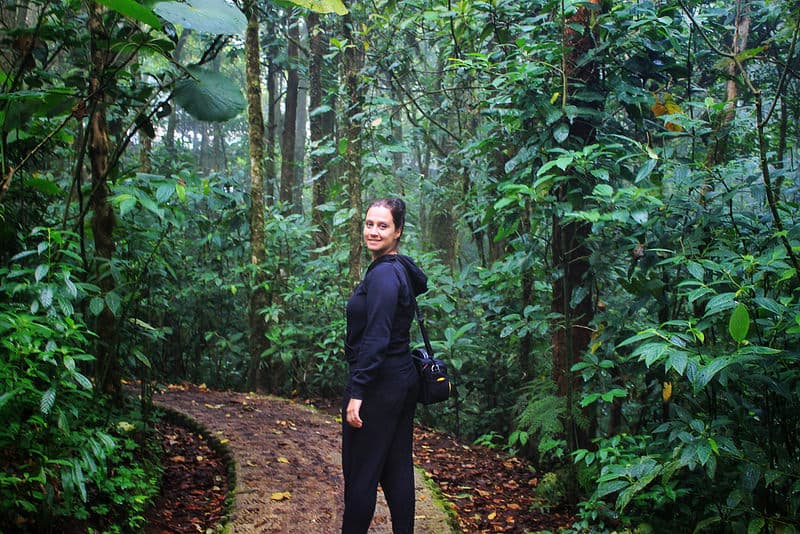
How to choose the greenest airlines
Flying has a huge carbon footprint, but some airlines are greener than others. While we aren’t at a stage where flying causes no pollution, we can still choose carefully when planning our flights and our holidays. Be mindful and consider which airlines are actually taking steps to reduce their carbon footprint as much as possible.
Do your best to fly with airlines that take steps, big or small, to make the world a greener and healthier place for all of us. Here are a few airline practices to consider and a list of eco-friendly airlines to choose from.
What to look for:
- Do they use environmentally friendly flights?
- Do they recycle their used pillows, blankets, and uniforms?
- How sustainable are their food options (do they serve plastic, e.g. single-use knives, forks, and spoons or plastic containers)?
The most sustainable airlines
According to Alternative Airlines, these are 10 of the most eco-friendly airlines to travel with:
- Alaska Airlines
- Delta Airlines
- American Airlines
- KLM
- Jetblue
- United Airlines
- Easyjet
- Cathay Pacific
- Ryanair
- British Airways




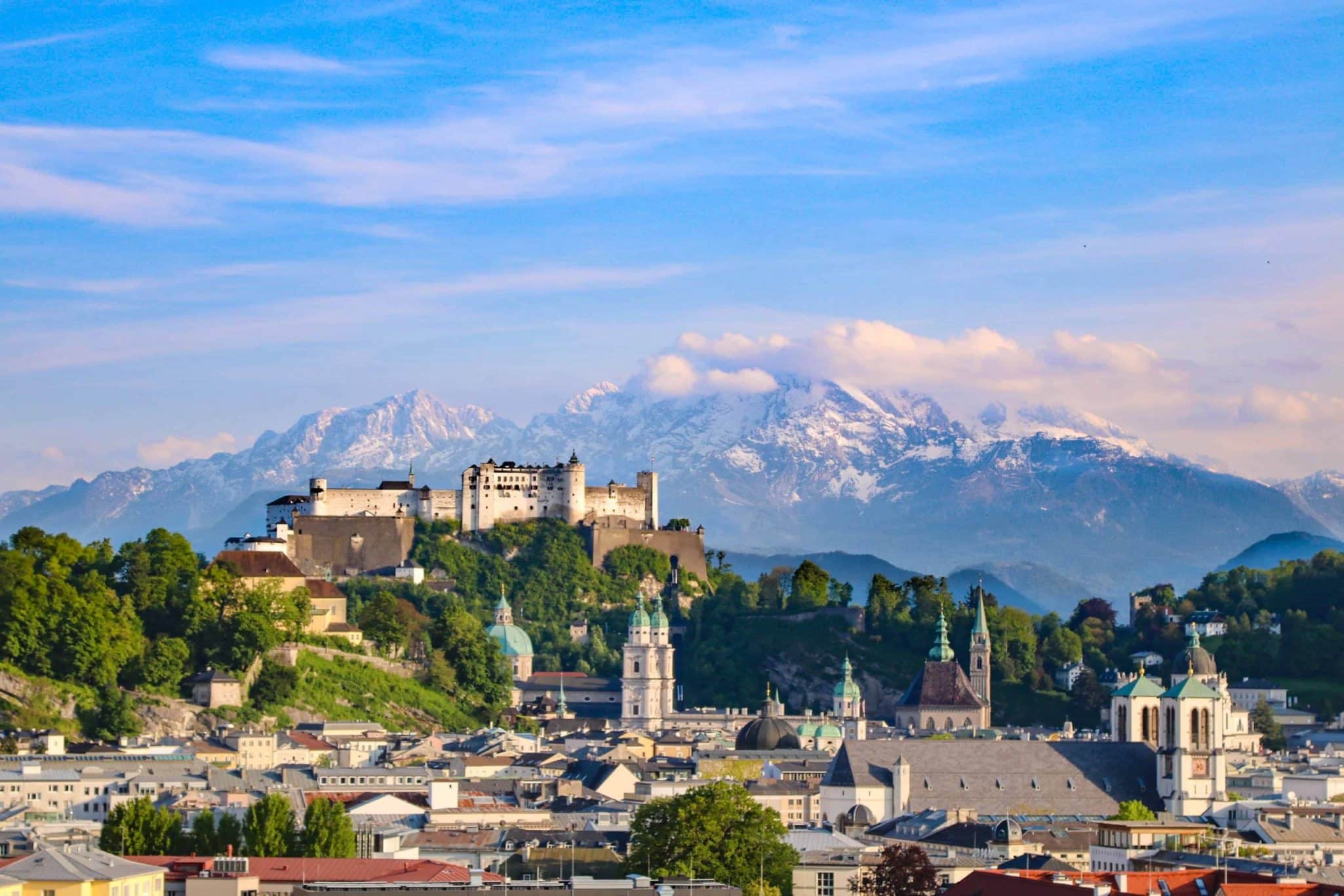



I like how you mentioned that it’s important for travelers to take responsibility everywhere they go and keep eco-friendly travel in mind to safeguard the environment in this day and age of increasing sea levels, forest fires, and pollution. I have a cousin who went on an eco adventure on New Smyrna Beach and discovered how beautiful it was. Thanks for helping me understand about The ultimate guide to eco travel in order to keep a sustainable and healthy place for travelers.
You’re very welcome, Taylor. Thank you for reading.